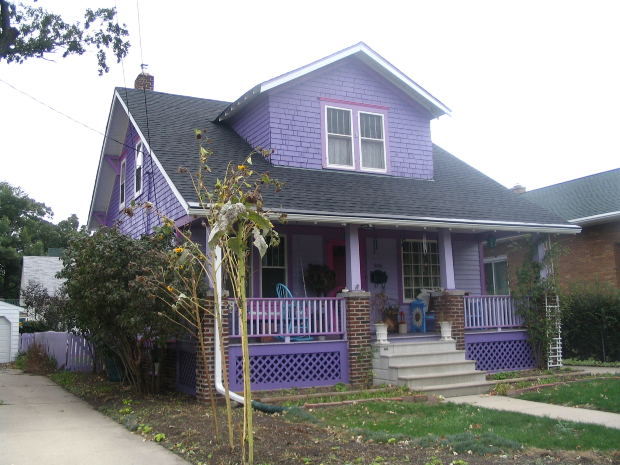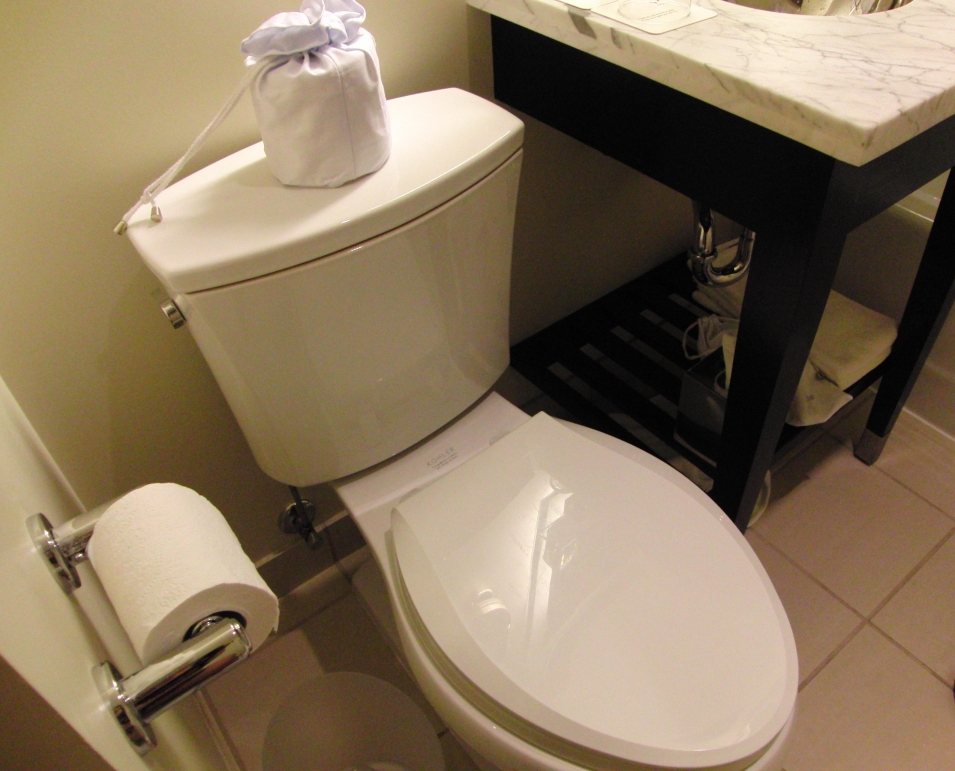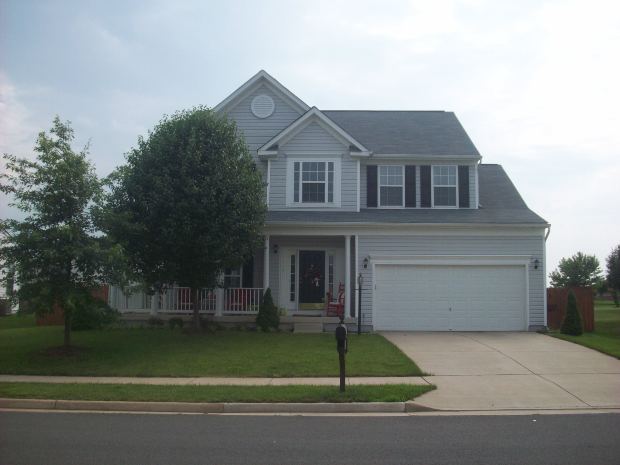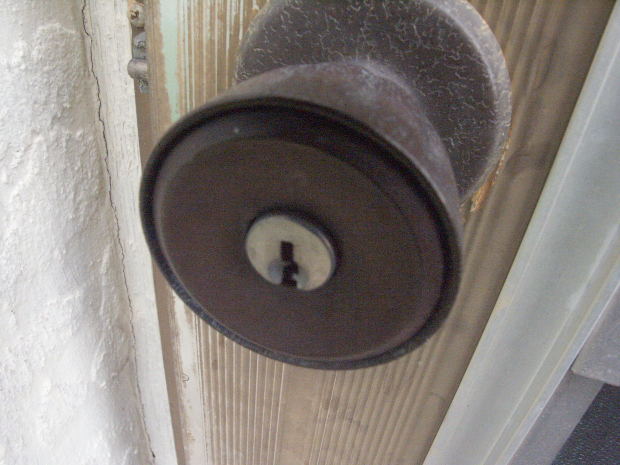 Always dreamed about investing in Italy’s real estate? You’re not the only one! Italy is back to attracting foreign commercial real estate investors. To read the article, CLICK HERE.
Always dreamed about investing in Italy’s real estate? You’re not the only one! Italy is back to attracting foreign commercial real estate investors. To read the article, CLICK HERE.
Things You Should Know Before You Purchase A Home
 Buying a home can be exhausting and stressful. But there are some things you may want to consider before buying. This may seem obvious but always look for a home you can truly afford. Use an online calculator to factor in your income and debts. To read more, CLICK HERE.
Buying a home can be exhausting and stressful. But there are some things you may want to consider before buying. This may seem obvious but always look for a home you can truly afford. Use an online calculator to factor in your income and debts. To read more, CLICK HERE.
The End Of Suburbs
 A pre-housing-bust development near Las Vegas has a street layout that impedes foot and bicycle traffic More >>> By Leigh Gallagher, assistant managing editor @FortuneMagazine
A pre-housing-bust development near Las Vegas has a street layout that impedes foot and bicycle traffic More >>> By Leigh Gallagher, assistant managing editor @FortuneMagazine
Housing: The one bailout America could really use
Laurie Goodman from MONEY magazine is an apolitical number cruncher who has spent most of her 28-year career out of the public view. We think you’ll enjoy this great publication about the housing market.
How High Could This Real Estate Investment Fund (REIT) Stock Go?
This week I have another one of my favorite stock picks for you. I added this company to my portfolio a while back and it’s treated me well. Best of all, this stock has lots of room to run.
I’ll give you the company name in a moment… but first a little background on why I like this stock so much.
We all know how aggressive the Federal Reserve has been when it comes to flooding the economy with cheap and easy money. How can you argue the point with $600 billion in stimulus entering the market, and interest rates at 0.25%.You simply can’t!
Now I’ve been watching for companies performing well in cheap money environments… and today’s company is one I really like.
Now keep in mind, this isn’t another tirade on the falling value of the US Dollar or how inflation is going to spin out of control (though it eventually will).
The key to this company’s success is low borrowing costs.
My pick this week is a company who borrows money very cheaply and then invests for a higher return. It’s a strategy called capturing the spread… and the profits can be fat and easy in today’s market place.
So what company am I talking about? None other than MFA Financial (MFA).
Now I’m sure you’re wondering who MFA is and how they make their money. And I’m glad you asked.
Think of MFA like a bank… they borrow money very cheaply and then invest the money in higher yielding investments. Their investment of choice is mortgage backed securities.
Wait a minute, aren’t mortgage backed securities as good as MUD after the financial meltdown? Well, yes and no.
You see, the MFA management team is smart. They only invest in quality mortgage backed securities. That means while other “risky” funds put their money in high risk, high yield mortgage pools, MFA stuck with the most stable and secure.
It cost them a little in earnings… but when the crisis hit they were looking good!
Now, here’s where I need to let you in on a little secret that most people don’t know. These mortgage backed securities are special. MFA is able to borrow against their own investments!
Banks will loan MFA money… as long as the mortgage backed securities back up the loan.
This means MFA can leverage up their investment. Consider this… for every one dollar the company has to invest, they can borrow another 5 to 10 dollars… which they use to buy… you guessed it… more mortgage backed securities.
MFA owns almost $8 billion of the mortgage backed securities.
So by borrowing and investing, MFA is capturing even more of the spread. So how profitable is investing for the “Spread”? In the third quarter of 2010 the company captured a spread of 2.56%. It doesn’t sound like much. However, during that time, MFA was able to generate a net income of over $75 million!
Not bad…
But I haven’t even told you the best part about this investment. MFA is set up as a REIT. So by law, they have to send shareholders their cut of the profits. In the third quarter it worked out to a dividend of over $0.22 per share.
Now 22 cents won’t get you very far in life… but consider on an annualized basis (and with the stock around $8), MFA yields more than 11%!
Let’s see you get that kind of a return in a savings account… it’s just not going to happen.
Now, before you rush out and load the boat on this one… there are some risks. Obviously, if the banks stop lending to MFA, or their loans get called the company could be in a pickle.
They are also at risk once interest rates start moving. This risk doesn’t really concern me… remember good old Ben Bernanke at the Federal Reserve is working hard to keep rates low and the easy money flowing.
Besides, the MFA management team has been around for a while. And they’ve all worked in environments where interest rates have been much, much higher.
So how high can MFA’s stock go?
That’s a million dollar question. Just remember, a few short years ago the stock was trading for over $10 a share. That’s a 20% return from here.
Don’t forget too, the yield at 11% is an attractive one. Bigger companies often have dividend yields of around 2% or 3%.
Assuming the dividend payout of $0.88 per year stays the same… MFA would need to see the stock climb to $17.50 a share (more than double current levels) to see the yield fall to a more reasonable 5%
 Chart courtesy of StockCharts.com
Chart courtesy of StockCharts.com
Despite the recent run-up from $7.50 to $8, I still think this is a good area to establish a position in MFA.
ACTION TO TAKE
If you like what you read, remember to do your own diligence. Buy shares of MFA Financial (MFA) up to $8.75 a share.
Housing Or Stocks?
 Should you hand over your money to housing or stocks? Today’s article discusses investing in the stock market versus the housing market. Here’s what they had to say, “even as the stock market soars to record highs, federal regulators are announcing new, cheaper ways for cash-strapped borrowers to buy a home. With the catastrophic housing crash of the last decade still glaring through the rear view mirror, the government is again pushing home ownership as the best way to build wealth, but is it? ” To read more, CLICK HERE.
Should you hand over your money to housing or stocks? Today’s article discusses investing in the stock market versus the housing market. Here’s what they had to say, “even as the stock market soars to record highs, federal regulators are announcing new, cheaper ways for cash-strapped borrowers to buy a home. With the catastrophic housing crash of the last decade still glaring through the rear view mirror, the government is again pushing home ownership as the best way to build wealth, but is it? ” To read more, CLICK HERE.
How You Can Save With Your Homeowner's Insurance
 Today’s article explains how you can get a variety of homeowner’s insurance discounts and all you have to do is ask. Here’s what they had to say, “insurance companies are offering some surprising ways to save on homeowner’s insurance with four out of the top ten insurers offering a discount for a home that was recently built or renovated. Bankrate’s analysis examined the discounts offered by the ten largest insurers operating nationwide on their websites.” To read more, CLICK HERE.
Today’s article explains how you can get a variety of homeowner’s insurance discounts and all you have to do is ask. Here’s what they had to say, “insurance companies are offering some surprising ways to save on homeowner’s insurance with four out of the top ten insurers offering a discount for a home that was recently built or renovated. Bankrate’s analysis examined the discounts offered by the ten largest insurers operating nationwide on their websites.” To read more, CLICK HERE.
How To Find A Great Contractor
 Deciding to renovate your home is a tough enough decision on its own but now that you’ve decided to do it, you need someone to do the work. It would be awful to put time and money into a renovation that was done wrong or badly. Today’s article gives nearly 20 tips on finding the right contractor. Here’s one, “Check licenses, complaints and litigation history. General contractors and most subcontractors should be licensed, although the procedure varies by state and municipality. Check the disciplinary boards, Better Business Bureau and local court records for problems. Ask the contractor for a copy of his license and copies of the licenses of the major subcontractors who will work on the job.” To read all of them, CLICK HERE.
Deciding to renovate your home is a tough enough decision on its own but now that you’ve decided to do it, you need someone to do the work. It would be awful to put time and money into a renovation that was done wrong or badly. Today’s article gives nearly 20 tips on finding the right contractor. Here’s one, “Check licenses, complaints and litigation history. General contractors and most subcontractors should be licensed, although the procedure varies by state and municipality. Check the disciplinary boards, Better Business Bureau and local court records for problems. Ask the contractor for a copy of his license and copies of the licenses of the major subcontractors who will work on the job.” To read all of them, CLICK HERE.
Ways You Can Make Your Home An Energy-Saving Home
 When it comes to energy-saving features for your home, today’s article has them all. From windows to toilets, there are several improvements you can make. Here’s one of them, “a lot of water flows through the bathroom and the cost of the water itself plus the expense of heating it adds up fast. Ask the seller if the bathrooms have low-flow toilets, faucets, and showerheads that meet federal WaterSense standards. Toilets use more water than anything else in the house, accounting for nearly 30 percent of an average home’s indoor water consumption. Older, inefficient toilets can use as much as 6 gallons per flush while WaterSense models use 1.28 gallons or less.” To see them all, CLICK HERE.
When it comes to energy-saving features for your home, today’s article has them all. From windows to toilets, there are several improvements you can make. Here’s one of them, “a lot of water flows through the bathroom and the cost of the water itself plus the expense of heating it adds up fast. Ask the seller if the bathrooms have low-flow toilets, faucets, and showerheads that meet federal WaterSense standards. Toilets use more water than anything else in the house, accounting for nearly 30 percent of an average home’s indoor water consumption. Older, inefficient toilets can use as much as 6 gallons per flush while WaterSense models use 1.28 gallons or less.” To see them all, CLICK HERE.
Tips For Buying A New Home
 Thinking of buying a new house at the beginning of next year? Today’s article discusses how you can evade paying way too much for a new home. Here’s one tip, “Do not rush into buying a house. While this is your potential home, it is also likely the biggest purchase of your life and you cannot make it lightly. If you find yourself too connected to a property, you may actually be more willing to overpay. It’s important to remain unattached and consider all options before you make an offer.” To see all of the tips, CLICK HERE.
Thinking of buying a new house at the beginning of next year? Today’s article discusses how you can evade paying way too much for a new home. Here’s one tip, “Do not rush into buying a house. While this is your potential home, it is also likely the biggest purchase of your life and you cannot make it lightly. If you find yourself too connected to a property, you may actually be more willing to overpay. It’s important to remain unattached and consider all options before you make an offer.” To see all of the tips, CLICK HERE.
Debunking Five Mortgage Myths
 Today’s article is telling you the truth when it comes to five mortgage myths. Here’s one, “A house is a great investment. It can be a good long-term investment, but nothing in real estate is guaranteed. Particularly if you plan to live in the home for several years, and you can’t afford to lose a lot of money, you need to think of your house as a house – not a financial tool designed to pad your investments or retirement.” To read more, CLICK HERE.
Today’s article is telling you the truth when it comes to five mortgage myths. Here’s one, “A house is a great investment. It can be a good long-term investment, but nothing in real estate is guaranteed. Particularly if you plan to live in the home for several years, and you can’t afford to lose a lot of money, you need to think of your house as a house – not a financial tool designed to pad your investments or retirement.” To read more, CLICK HERE.
Check Out These Hot Spots For Foreign Investors
 Today’s article discusses the top real estate hot spots for Chinese investors. Here’s what they had to say, “Big institutional Chinese investors who want global real-estate portfolios typically look for trophy projects in cities like New York, Los Angeles and London. Just this month, Hilton Worldwide agreed to sell its flagship Waldorf Astoria hotel in New York City to a Chinese insurance company for $1.95 billion—the steepest price tag ever for a U.S. hotel, brokers say, although it isn’t the highest on a per-room basis.” To read more, CLICK HERE.
Today’s article discusses the top real estate hot spots for Chinese investors. Here’s what they had to say, “Big institutional Chinese investors who want global real-estate portfolios typically look for trophy projects in cities like New York, Los Angeles and London. Just this month, Hilton Worldwide agreed to sell its flagship Waldorf Astoria hotel in New York City to a Chinese insurance company for $1.95 billion—the steepest price tag ever for a U.S. hotel, brokers say, although it isn’t the highest on a per-room basis.” To read more, CLICK HERE.
Landlords In This Area Are Making A Lot Of $$
 Today’s article discusses where landlords are making tons of money on rentals. Here’s what they had to say, “according to a new report from RealtyTrac, a leading source for comprehensive housing data, rental property in the United States posted an average annual return of 9.06% in the third quarter. That is down slightly from 9.65% in the same year-ago quarter, but still represents a significant return for landlords.” To read more, CLICK HERE.
Today’s article discusses where landlords are making tons of money on rentals. Here’s what they had to say, “according to a new report from RealtyTrac, a leading source for comprehensive housing data, rental property in the United States posted an average annual return of 9.06% in the third quarter. That is down slightly from 9.65% in the same year-ago quarter, but still represents a significant return for landlords.” To read more, CLICK HERE.
What You Need To Know Before Buying A Foreclosed Home
 When you are planning to buy a home, your first thought may not be to buy a foreclosed home. However, if you do find yourself deciding whether you should buy a foreclosed home, you should check out today’s article. The article explains step by step what you should do. Here’s one tip, “Get Help From a Real Estate Broker Who Specializes in Foreclosed Homes. Some real estate brokers and agents have relationships with banks, and broker the selling of the banks’ foreclosed properties, also known as “real estate owned” properties.” To read all of them, CLICK HERE.
When you are planning to buy a home, your first thought may not be to buy a foreclosed home. However, if you do find yourself deciding whether you should buy a foreclosed home, you should check out today’s article. The article explains step by step what you should do. Here’s one tip, “Get Help From a Real Estate Broker Who Specializes in Foreclosed Homes. Some real estate brokers and agents have relationships with banks, and broker the selling of the banks’ foreclosed properties, also known as “real estate owned” properties.” To read all of them, CLICK HERE.
What You Need To Know Before You Buy A Fixer Upper
 With all of the home improvement shows on television now, buying a fixer upper and creating an amazing house seems like a no brainer. But can you actually afford to buy a home that may require major repairs and improvements? Today’s article discusses your options. Here’s what they had to say, “committing to a fixer-upper is a big decision, one that can impact your financial picture for years to come. Before you start swinging a hammer, you’ll first need to find a way to finance your purchase. You may need a specialized mortgage product to buy a fixer-upper. Some lenders and loan types want properties in “move-in ready” condition, which can obviously pose a problem.”
With all of the home improvement shows on television now, buying a fixer upper and creating an amazing house seems like a no brainer. But can you actually afford to buy a home that may require major repairs and improvements? Today’s article discusses your options. Here’s what they had to say, “committing to a fixer-upper is a big decision, one that can impact your financial picture for years to come. Before you start swinging a hammer, you’ll first need to find a way to finance your purchase. You may need a specialized mortgage product to buy a fixer-upper. Some lenders and loan types want properties in “move-in ready” condition, which can obviously pose a problem.”
